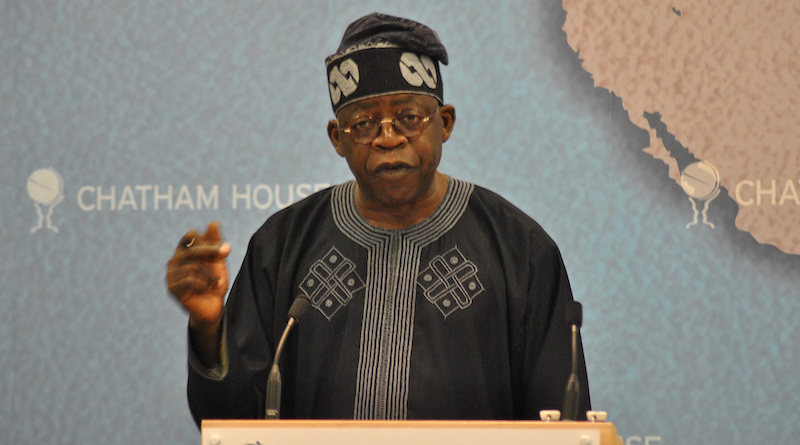By the time he is sworn in on 29 May, Bola Tinubu should be fully aware that the Boko Haram crisis presents an immense challenge to his government. After being declared winner of the 25 February presidential election, he has likely started working on the transition, including getting security briefings.
As leader of the ruling All Progressives Congress and a close ally of President Muhammadu Buhari, Tinubu can also benefit from first-hand information from his vice-president-elect, Kashim Shettima. Shettima was governor of Borno State, the state which remains hardest hit by insecurity, at the height of Boko Haram’s violence between 2013 and 2015.
Pledging allegiance to Islamic State, the insurgents now control 27 local government areas across North East Nigeria, causing one of the world’s biggest but most under-reported humanitarian crises.
Boko Haram presents the hardest security test for Tinubu. Now in its 14th year, the insurgency has defied solutions, which to date have been mostly military. Buhari was the third president unable to end the crisis, despite promising to do so during his campaigns. He claimed to have defeated the group after becoming president, but Boko Haram’s violent attacks have continued, including outside its core areas of the North East.
Boko Haram isn’t the only security concern Tinubu will have to contend with
More disturbingly, Islamic State West Africa Province (ISWAP) – founded less than three months before Buhari became president in 2015 – grew and spread during his presidency. In the past year, ISWAP has claimed attacks in at least seven states outside Borno: Abuja, Edo, Kano, Kogi, Niger, Ondo and Taraba. All were places ISWAP hadn’t attacked before.
Boko Haram isn’t the only security concern the next president will have to contend with, however. Banditry has reached such an alarming level that people in the North West are fleeing their homes across the borders to Niger. Villagers cannot access their farmlands due to fear of attacks.
In some cases, communities are forced to pay bandits in order to be allowed to farm. The damage this causes to livelihoods has increased malnutrition among children in the region. Banditry is already spilling over into Niger, a country that is also facing the Boko Haram challenge.
Similarly, in North Central Nigeria, the farmer-herder crisis remains a major concern. At the same time, communal clashes and separatist agitation threaten peace in the south, notably the South East and South South zones.
Tinubu undoubtedly has his work cut out for him, but the incoming president also has an opportunity to show Nigerians that he can rein in insecurity.
Tinubu’s appointments to head the security agencies will show how much importance he attaches to the issue
Some of the early appointments a Nigerian president usually makes are heads of the security agencies, ranging from the national security adviser to the chief of defence staff. These are the people who will drive his vision on security, so getting these appointments right will show how much importance he attaches to the issue.
As Commander-in-Chief, the president must be seen to be in charge of the situation. He can do this by being decisive, holding appointees to account and linking their tenure to meeting deliverables. He should heed the litany of complaints and public outcries calling for previous security chiefs to be sacked – and Buhari’s refusal to budge. Buhari in fact continued to defend them in the face of worsening insecurity.
Tinubu should consider an intelligence-driven sector that nips security threats in the bud before they manifest. To achieve this, the Nigerian security sector must be transformed from its current largely predatory nature to one that is civilian-centric and focused on building trusting relations with civilians. If Nigeria’s people trust security officials, they will be willing to help, especially when it comes to intelligence gathering.
The president must also consider long-term solutions that go beyond military intervention. He should devote equal attention to the governance and socio-economic issues that provide fertile ground for recruitment into violent extremism and criminal gangs.
The security sector must be transformed from its largely predatory nature to one that is civilian-centric
Tinubu also has the opportunity to provide leadership in West Africa and the Sahel on tackling the rising insecurity from different terrorist groups. Successes borne from decisive action on Nigeria’s internal security challenges can be used to rally other countries’ leaders into cooperative efforts. These efforts must address the problem regionally and holistically by denying insurgents the space to operate and expand.
Developments in the Lake Chad Basin and Sahel have shown that violent extremism cannot be defeated by one country alone, due to the internationalisation of the crisis. This makes recruitment and attacks across borders easy.
With the best land force in Africa and the second best military in sub-Saharan Africa, Nigeria has the capacity to provide leadership in the region. What is lacking is the political determination to translate that capacity into tangible results – and this is the opportunity that Tinubu’s incoming administration should capitalise on.
Buhari will be remembered for Operation Safe Corridor, the country’s programme to reduce radicalisation and reintegrate former combatants. The operation significantly reduced Boko Haram’s members by more than 1 000 fighters. However, Tinubu has the opportunity to be remembered as the leader who finally ended the crisis.

